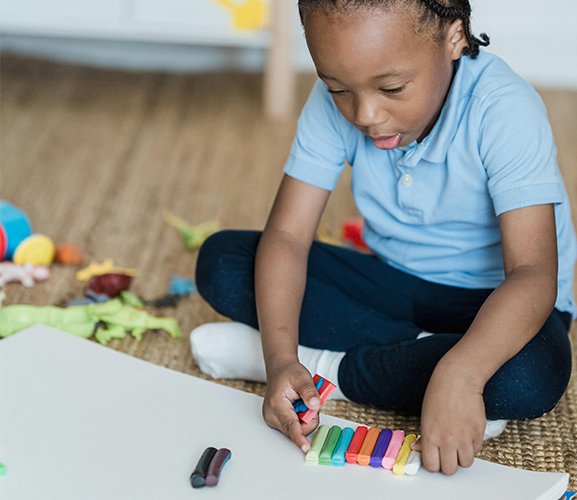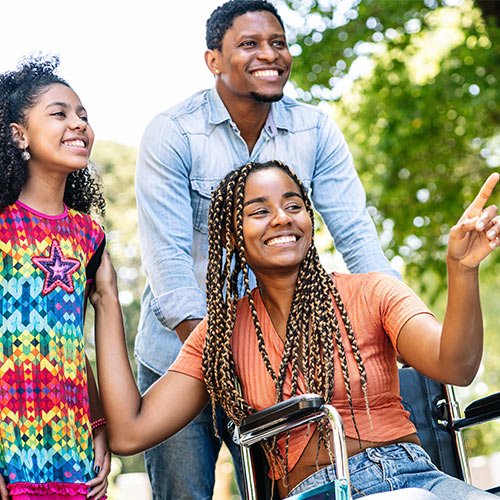What We Do
Barrier-Free Schools
In Ghana, education is considered a right for all citizens. However, the 2010 population census shows that 20% of children with physical disabilities are not in school. Furthermore, 40% of individuals with disabilities aged three and above have never received formal education. Although the Government of Ghana has promoted an “all-inclusive” education approach through its Inclusive Education Policy, progress has been hindered by a lack of resources. Many public schools remain inaccessible, making it challenging for children with disabilities to receive the same quality of education as their peers.
The exclusion of children with disabilities from education leads to social isolation and limits their future career opportunities due to a lack of skills. To address these issues, the Barrier-Free Schools program has been established to evaluate schools, propose accessible design improvements, and secure funding to implement these changes. Currently, the program’s first project is the expansion of a Visually Impaired Resource Centre at Adidome Senior High School.


Access beyond the Ramp
In Ghana, ramps are the most common accessibility feature found in buildings such as banks, government offices, health centres, shops, restaurants, and private corporate spaces. However, these ramps are often steep or obstructed by flower pots, air conditioning units, cars, motorbikes, and more. Unfortunately, in many cases, the presence of a ramp is the only measure taken for accessibility.
True accessibility goes beyond just providing ramps. For a building to be genuinely accessible, all individuals must be able to perceive, understand, navigate, and interact with both the physical and digital elements within the space. This means not only easy entry but also making sure that services and facilities are usable by everyone, regardless of ability.
The “Access beyond the Ramp” initiative aims to engage both private and public institutions by providing accessibility training and conducting audits of their premises. The program will guide them on how to improve their accessibility and will introduce an accessibility rating system for public buildings, helping people with disabilities know what to expect when visiting these spaces.
Disability Awareness Campaign
Despite national policies and advocacy efforts to improve the lives of people with disabilities in Ghana, stigma remains a major challenge. This stigma often arises from misunderstandings about disability, societal attitudes, misconceptions, and cultural beliefs, leading to the marginalization and exclusion of persons with disabilities. As a result, many find it difficult to fully participate in social and economic activities.

See what our volunteers are saying
This is pure speculation, but for a period of time, a lot of getting into a party was through fundraising and volunteer work, and Republican women had more time to do that than democratic women, who were out there getting jobs.
Madeleine Albright
I started working at a soup kitchen in skid row of Los Angeles when I was 13 years old, and the first day, I felt really scared. I was young, and it was rough and raw down there, and though I was with a great volunteer group, I just felt overwhelmed.
Meghan Markle
Be of service. Whether you make yourself available to a friend or co-worker, or you make time every month to do volunteer work, there is nothing that harvests more of a feeling of empowerment than being of service to someone in need.
Gillian Anderson


